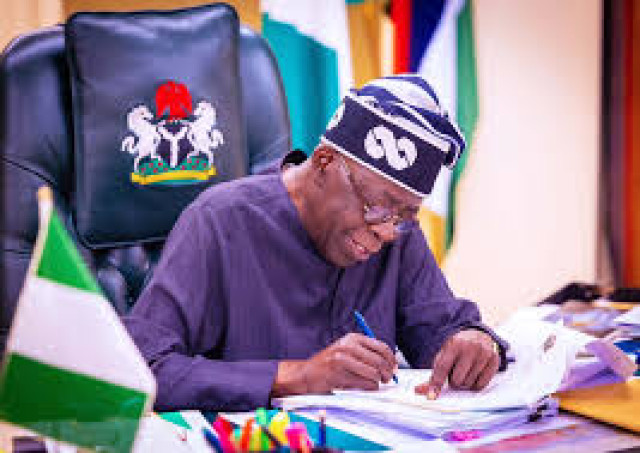The Nigerian government is preparing to commence the production and distribution of tires, batteries, brake pads, and other car parts in order to enhance the country's automotive industry.
The policy is intended to increase the availability of local components in the auto parts market by 40 percent.
The Minister of Industry, Trade and Investment,Doris Aniete, announced this initiative during the ministerial sectoral briefing to commemorate President Bola Tinubu's first year in office on Tuesday in Abuja.
She mentioned that the program will be carried out in partnership with manufacturers, dealers, regulatory bodies, and other stakeholders in the automotive sector.
The Nigerian automobile industry for a long time has been dependent on imports to meet local demands for vehicles and spare parts.
At a recent event, the Chairman, of West Africa Automative Show, Luqman Mamudu, said Nigeria accounts for about 78.8 per cent of automotive components imported to West Africa.
According to him, about $6.2bn is spent on importing automotive components and parts to the region yearly with Nigeria alone accounting for $4.2bn.
In the briefing, the minister highlighted the importance of a newly developed framework that prioritizes collaboration among manufacturers, dealers, regulatory bodies, and other stakeholders in the automobile industry.
This collaborative approach is seen as crucial for addressing challenges and unlocking investment opportunities.
The minister also stressed the significance of local automotive components, pointing out the potential for substantial foreign exchange savings through domestic production of parts.
Additionally, steps are being taken to capitalize on the potential opportunities within the nation's automotive sector.
The strategy involves working in partnership with the National Automotive Design and Development Council to revitalize the Nigerian automotive industry by aiming to locally supply 40% of its components, including items such as glasses, tires, batteries, brake pads, foam, seats, exhaust systems, and electric cables.
The minister emphasized the need for collaboration among all stakeholders in the automobile ecosystem, believing that by working together, they can address challenges, streamline processes, and drive innovation.
The automotive industry is poised to establish off-take agreements among themselves, marking a historic moment for Nigeria.
Through these agreements, suppliers can be confident that car assemblers and manufacturers will purchase their products, while assemblers can be assured of a reliable supply chain and consumers can access affordable brand new cars.
This approach aligns with import substitution, eliminating the need to use foreign exchange to purchase items that can be produced domestically.
Aniete stated that the government had attracted the sum of $3.5bn to develop a resurgence plan for optimised performance of the Nigerian Cotton, Textile and Apparel Industry in partnership with development partners and private sector players to unlock the sector.
"The Nigerian Ministry is currently working on a Resurgence Plan to enhance the performance of the Cotton, Textile, and Apparel Industry in collaboration with development partners and private sector stakeholders. A substantial investment of $3.5 billion has been secured to revitalize this sector."
The minister emphasized that Nigeria's textile and apparel industry encompasses the entire clothing value chain and holds significant potential for expansion, supported by the abundance of cotton and the country's large market size, which is comprised of over 200 million people.
She highlighted that the industry is a major contributor to the country's manufacturing sector, with considerable potential for generating employment opportunities for both skilled and unskilled labor, attracting foreign direct investment, and alleviating poverty.
In terms of revenue, the trade minister revealed that the Lagos International Trade Fair Complex experienced a substantial increase in revenue to the federal government in the first quarter of 2024, amounting to 430 million naira, compared to just 17 million naira in 2023.
Furthermore, the minister announced that the ministry will be hosting the Lagos International Trade Fair, which was last held 14 years ago in 2010. She expressed confidence that this event, coupled with the ongoing improvements, will position Nigeria as a prominent market hub in West Africa.
She also emphasized that the revival of this trade fair signifies the government's unwavering commitment to reclaiming its status as a regional market leader in West Africa.




















